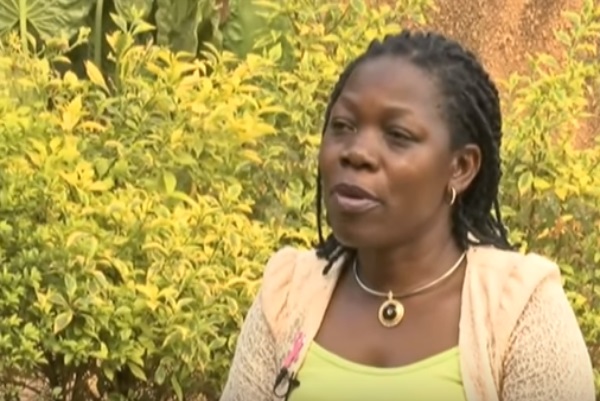This year’s theme for the World Cancer Day is anchored on creating awareness collectively or individually on what one can do to reduce the global burden of cancer. In Uganda, the scourge of cancer continues to peril lives. And according to the Kampala Data Registry, by 2017 we had an excess of 200,000 cases both new and old including those that have been treated and cured. Most of those found with the disease die a slow and are diagnosed with death. However, Gertrude Nakigudde overcame breast cancer. She says, earlier diagnosis helps to overcome the disease. “16 years ago I had a lump in the breast but I didn’t know what it was.”
Cancer a none communicable disease can be treated and is curable if detected early. However, the symptoms are painless. “It didn’t take a lot of concern about it because it wasn’t painful, it was small and I kept that swelling for one year but that swelling kept growing bigger and bigger. So one time I felt a slight pain but it was so instant, when I went to see a surgeon, he told me it is innocent but we can remove it. And to me, it was removing that something that had always been there and I never thought it would be cancer. Everywhere I went they said if it was cancer the solution is to have your breast off; that was another nail hitting into my fresh.” Gertrude Nakigudde – Breast Cancer Survivor. However, Nakigudde said that there is a lot of stigma surrounding cancer which is one of the reasons why some people choose to wait for fate. “And it really took me a lot of time to cope, to get used to my sight; I would look at myself in the mirror and cry. One time I even told my surgeon that may be I remove even this one because I looked disfigured. A lot of patients up to today don’t even continue with treatment because they don’t take decisions the right way because they don’t have enough information. For example, as I said, to accept to have your body part, your breast off, that is a major decision that you really take to decide that let me have my leg off because that will save me. A lot of women I see even dying today because they can’t imagine living without a breast.”
Uganda Cancer Institute registers between 4,500 to 6,000 new cancer cases every year. But there is low access to medication at the cancer institute. For every 100 suspected cancer cases, only 4% make it to Uganda Cancer Institute while 96% do not access care. To make the days event, various partners including the Health Ministry and the Parliament participated in events to raise awareness. While speaking at the Parliament, the Health Minister requested for more support especially in the detection of cancer. “We need to know exactly the types of cancers we have in this country, their magnitude and we need to find ways of reaching out to the people with correct information.” Said, Dr. Jane Ruth Aceng – Health Minister. Dr. Aceng also said the Ministry is working to procure more modern equipment to help in diagnosis. “Already we have started bringing in a few equipment but moving forward we shall put emphasis on ensuring that diagnostic equipment is available in the country well as to be diagnosed and get treatment when it is necessary. Because there are so many unnecessary referrals that can actually be handled from here but we refer them and then we meet Ugandan doctors on the other side to treat them.”
There is a risk in our population related to lifestyle choices such as consumption of tobacco and alcohol. These have direct links to cancer-causing agents. Some of the commonest cancers here include cervical cancer, breast cancer, prostate cancer, cancer of the liver among others. The Speaker of Parliament Rebecca Kadaga tasked the Health Minister to do more in the fight against cancer but she also pledged support from Parliament. “You can take it for granted that Parliament supports you and we shall walk with you whenever you need us.” Said, Rebecca Kadaga – Speaker of Parliament. Your chances of developing cancer are affected by the lifestyle choices you make and thus simple lifestyle changes can make a big difference. Do not use tobacco, eat a balanced diet, maintain a healthy weight and be physically active, if you choose to drink alcohol do so only in moderation, limit processed meats and go for regular screening to know your status for early detection and intervention.

